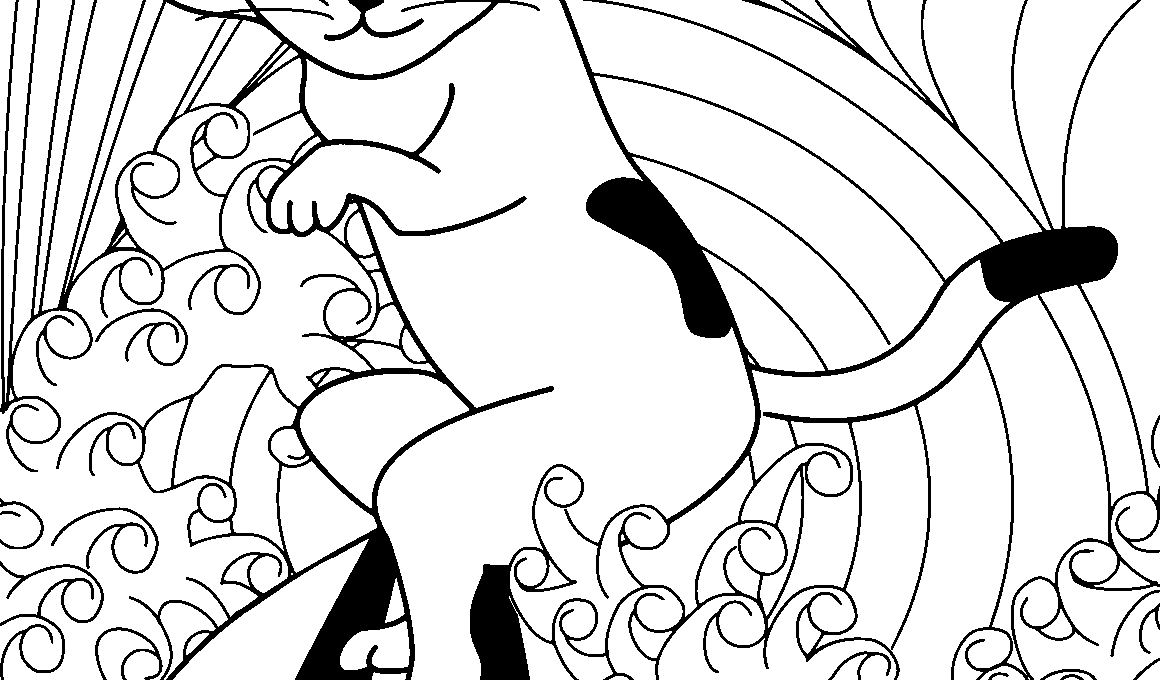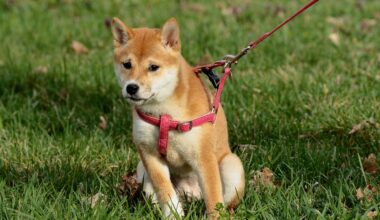The Role of Play in Mental Stimulation for Cats
Play is a vital component of a cat’s life, serving not only for entertainment but also for essential mental stimulation. Engaging in playful activities can prevent boredom, which significantly benefits a cat’s overall health. During playtime, cats display their natural hunting instincts, which involves stalking, pouncing, and capturing. These actions help sharpen their mental acuity and physical agility. Additionally, play serves as a channel for stress relief, allowing cats to express energy in a productive manner. With diverse play options available, it’s important for cat owners to curate stimulating activities tailored to their feline’s unique preferences. Incorporating interactive toys that mimic prey can enhance the experience, making it more engaging and rewarding. Furthermore, creating a safe, enriched environment encourages exploration and curiosity, providing countless opportunities for mental challenges. Owners should observe their cats to determine specific interests, ultimately fostering a more productive and dynamic playtime experience. This proactive approach can significantly contribute to a cat’s emotional well-being and quality of life, making playtime not just a pastime but a necessary part of their daily routine.
Different types of play can cater to various aspects of mental stimulation in cats. Engaging toys such as feather wands, laser pointers, and even simple balls can offer numerous opportunities for participation and excitement. Rotating toys regularly can maintain a cat’s interest, preventing them from becoming bored or disinterested. Furthermore, cats are not all the same; individual personalities dictate the type of play they prefer. Some may thrive in interactive games requiring owner involvement, while others may relish solo playtime with challenging toys like puzzle feeders. Puzzle toys are particularly beneficial as they encourage problem-solving, requiring cats to think critically about how to retrieve treats. Interactive play sessions enable owners to bond with their cats, enriching their relationship while providing necessary exercise. Additionally, engaging in routine playtime establishes a healthy outlet for excess energy. Incorporation of treat-based rewards can increase motivation, encouraging deeper engagement. Protecting cats’ mental health through regular, varied play can prevent behavioral issues that arise from boredom or stress. Creating an environment that encourages exploration ensures these intelligent creatures remain stimulated, active, and happy.
The Importance of Variety in Play
Variety is key in ensuring that cats receive the mental stimulation needed for optimal health. Just like humans, cats can become tired of repetition, leading to decreased interest in play. By mixing up toys and play activities, owners can keep their feline companions engaged and excited. Introducing new toys and activities encourages curiosity, which activates a cat’s natural hunting instincts. Animal behaviors such as stalking and pouncing can be mimicked during play, allowing a cat to engage in their inherent skills. For added challenge, setting up an obstacle course using household items can stimulate both physical and mental capabilities. Moreover, playtime can be enhanced by integrating diverse environments, such as outdoor play in safe, enclosed areas. The introduction of scents, like catnip or new materials, can also ignite a cat’s sense of exploration. Seeking out varied play styles, including hide-and-seek games or feather-chasing, ensures mental enrichment. Regularly incorporating these variations is essential for maintaining mental well-being. Overall, the need for engagement through diverse play options remains paramount for ensuring cats live fulfilling lives.
Physical exercise and mental stimulation through play are closely intertwined in a cat’s daily activities. Engaging in play helps maintain a cat’s physical health by promoting muscle strength, flexibility, and coordination. The positive impacts of physical activity extend beyond mere fitness; it contributes to overall mental health as well. Exercise releases endorphins in both cats and humans, which help reduce stress and promote a sense of well-being. Regular interaction with active play offers mental resiliency, providing cats with essential tools to cope with environmental changes or challenges. Furthermore, physical play sessions help reduce risks of obesity and related health issues, reinforcing the significance of maintaining a healthy weight. Owners should monitor their cat’s weight throughout changes in lifestyle. In addition to physicality, mental exercises, such as training sessions involving positive reinforcement, can deepen the bond between owner and pet while cognitively challenging the animal. Transitioning between physical and mentally stimulating activities can vastly improve a cat’s quality of life, encouraging longer lifespans filled with vitality and energy. Prioritizing play can also strengthen emotional connections, fostering a loving and caring relationship.
Cognitive Benefits of Interactive Play
Interactive play offers countless cognitive benefits for cats, taking mental stimulation to new heights. Engaging in games that require problem-solving can enhance a cat’s intelligence significantly. Using puzzle feeders or interactive toys pushes cats to employ critical thinking skills, often resulting in delightful discoveries. As cats learn how to successfully navigate these challenges, they develop a sense of accomplishment that boosts their self-esteem. Interactive play also fosters adaptability, as cats learn to respond to different toy movements or scenarios. This not only alleviates boredom but also encourages the development of essential life skills. Moreover, interactive play sessions provide opportunities for socialization, promoting positive interactions with human companions. These engagements can help reduce anxiety, as cats develop comfort and familiarity during play. Such social bonds are crucial for a cat’s overall emotional health. Owners should consider incorporating social play with their cats regularly, cultivating a nurturing atmosphere filled with encouragement and patience. Using a variety of interactive tools continuously sparks curiosity, ensuring cognitive stimulation is consistently integrated into a cat’s daily routine.
The impact of play on mental health cannot be underestimated. Regular play sessions contribute significantly to a cat’s emotional stability by alleviating boredom or stress-related behaviors. Engaging with toys provides an emotional outlet, allowing cats to channel any pent-up energy into productive play. If a cat does not receive adequate mental stimulation, they may experience behavioral issues, leading to anxiety or aggression. By consistently providing play opportunities, owners can proactively combat these potential challenges, creating a harmonious living environment. Furthermore, predictable play routines establish a sense of security, giving cats assurance regarding their daily activities. When cats know when to expect playtime, it fosters trust and strengthens the human-animal bond. Establishing this trust is crucial for their emotional well-being and contributes to a sense of comfort within their surroundings. Owners should remain attentive to their cats’ changing preferences and adjust play activities accordingly. Tailoring experiences ensures that play remains fresh and exciting, enhancing the connection between owner and pet. Ultimately, dedicating time to play is an investment in a cat’s mental and emotional health.
Conclusion: Nurturing a Playful Environment
Creating a playful environment enhances a cat’s quality of life in remarkable ways. Owners play an essential role in nurturing this aspect of their cat’s existence. By being proactive in providing diverse play options, owners can maintain their cats’ mental stimulation and overall well-being. Observing individual preferences helps tailor activities that resonate with each cat’s unique personality. Incorporating elements like climbing structures, scratching posts, and engaging toys elevates playtime experience. Furthermore, ensuring safety during play promotes confidence in exploring new activities. This empowers cats to develop both physically and mentally. As stimulating activities become part of their daily routines, they begin to thrive in their environments. Establishing a strong bond through play fosters love and affection, enhancing the relationship between cats and their owners. In conclusion, prioritizing playtime is not merely beneficial but crucial for ensuring a cat’s happiness and health throughout their lives. By integrating meaningful play experiences that challenge body and mind, cat owners empower their furry companions, creating joyful memories together that enrich both lives.
This is an additional placeholder paragraph to meet formatting requirements.


